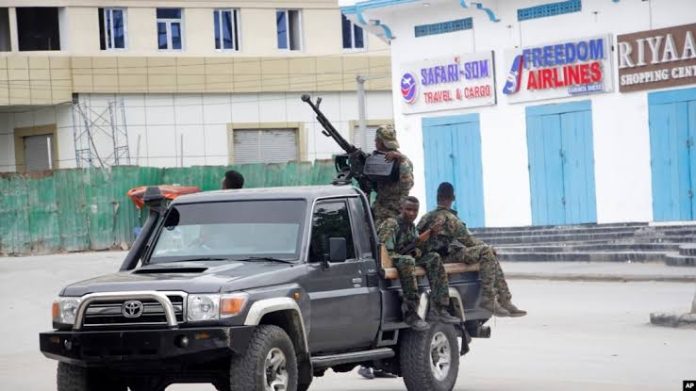Facebook Twitter (X) Instagram Somali Magazine - People's Magazine
The Islamic State’s (IS) affiliate in Somalia, also known as IS-Somalia, is experiencing significant growth due to an influx of foreign fighters, according to a new United Nations report. The group has reportedly more than doubled its size, with intelligence estimates placing its numbers between 600 and 700 fighters.
The report by the U.N. Sanctions Monitoring Team highlights that foreign recruits, including those from the Middle East, are entering Somalia through maritime and overland routes, primarily into Puntland. These fighters have not only bolstered IS-Somalia’s capabilities but have also helped the group seize territory from its rival, the al-Qaida-linked al-Shabaab.
Key Role of Foreign Fighters in IS-Somalia’s Expansion
The report identifies fighters from at least six countries—Syria, Yemen, Ethiopia, Sudan, Morocco, and Tanzania—playing a pivotal role in strengthening IS-Somalia. Some captured militants revealed they received training from operatives originating from the Middle East.
The group’s territorial advances, particularly in Puntland’s Cal Miskaad mountains, signify a “drastic change” in IS-Somalia’s fortunes, according to intelligence sources.
Concerns Over Growing Global Prominence
Since 2022, Somalia has hosted al-Karrar, one of nine regional Islamic State offices established to maintain the group’s global operations. Despite leadership losses, the al-Karrar office has become more decentralized and resilient, complicating efforts to disrupt its activities.
Former IS-Somalia leader Abdulqadir Mumin, who narrowly survived a U.S. airstrike in June, now oversees IS affiliates across Africa as the head of the Islamic State’s general directorate of provinces. His former deputy, Abdirahman Fahiye Isse, currently leads IS-Somalia, with Abdiwali Waran-Walac managing the group’s finances.
Strong Financial Position Supports Growth
IS-Somalia’s financial capabilities remain robust. The report notes that the group generates sufficient revenue to sustain itself and contribute to other IS affiliates via the al-Karrar office.
“The relatively small size of IS-Somalia enables it to sustain operations and even generate surplus funds to support the broader Islamic State network,” the report states.
Warnings from Counterterrorism Experts
The growth of IS-Somalia has raised alarms among counterterrorism experts. Austin Doctor, director of counterterrorism research at the National Counterterrorism Innovation, Technology, and Education Center, described the influx of foreign fighters as “concerning.”
“The factors present in the Horn of Africa and neighboring regions are likely to attract more aspiring militants in the near term,” he said, warning global and local security forces to prepare for continued challenges.
Implications for Regional and Global Security
IS-Somalia’s increasing prominence poses a growing threat not only within Africa but also on the global stage. The group’s operational and financial expansion highlights the challenges facing international and regional efforts to combat extremism.
Security experts warn that the group’s influence could destabilize the region further, necessitating a coordinated global response.

